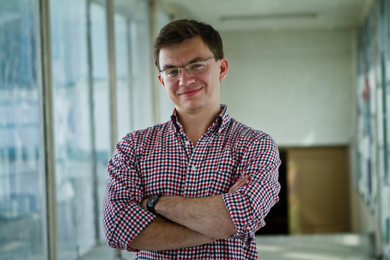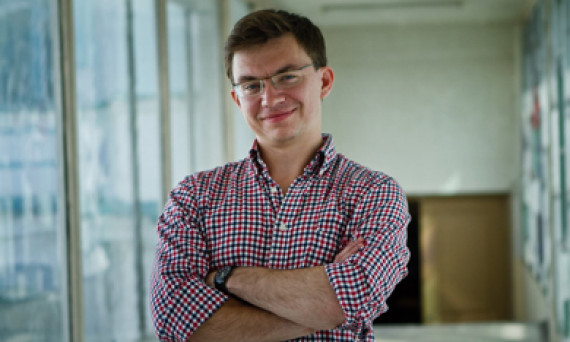 The IMARES program at the EUSP has opened its annual Workshop Series of public lectures this semester by hosting Dr. Ilya Yablokov, a Teaching Fellow in Russian Studies at the University of Leeds. Despite the announced title of the open lecture which began with a rather rhetorical "Big Brother, where are you?" question, instead of identifying the 'Big Brother' Yablokov intended again to explore and describe the role of conspiracy theories in Russian popular culture and politics as he did during his first visit to the EUSP in Spring, 2014.
The IMARES program at the EUSP has opened its annual Workshop Series of public lectures this semester by hosting Dr. Ilya Yablokov, a Teaching Fellow in Russian Studies at the University of Leeds. Despite the announced title of the open lecture which began with a rather rhetorical "Big Brother, where are you?" question, instead of identifying the 'Big Brother' Yablokov intended again to explore and describe the role of conspiracy theories in Russian popular culture and politics as he did during his first visit to the EUSP in Spring, 2014.
Before his introduction of the history and essential features of virtually any conspiracy theory Yablokov demonstrated two videos which were both informative and, at the same time, ridiculous enough to be perceived as satire. These were some of the best examples of exploiting and broadcasting conspiracy theories by a Russian MP and by Glenn Beck on Fox News. The examples taken from American and Russian media were apparently juxtaposed to support the assumption that conspiracy theories are omnipresent, regardless of the continent or the political culture of a given state.
The Q&A session that followed after a brief introduction by Ilya Yablokov challenged the latter to elaborate more on a number of questions that the audience had prepared for him. The number one question was: who and how can distinguish between a conspiracy theory and the truth? The answer was as straightforward as the question: you decide. It is up to us, according to Yablokov, to decide whether a given rumor is a conspiracy theory or the actual truth. But the existence of such theories at least is an indicator that there are problems in assessing the past (and I would add the present too, if not the future).
Rainer Matos Franco, an IMARES student from Mexico, took the floor to add two comments about the history of conspiracy theories in Russia and a question: why do people believe conspiracy theories? Yablokov said that all scholars have considered the question why rational people believe these ideas. To begin with, we should depart from the idea that conspiracy theories are believed by paranoids only. Rational people believe these theories too. This could be explained as an indicator that there may be fears of inequality within the society. E.g. in this way people can explain themselves being powerless.
ENERPO Associate Director Michael Camarda asked about the connection between access to information and the proliferation of conspiracy theories, while the last questions and feedback came from Dr. Nikita Lomagin, Academic Director of the IMARES program, who asked whether and how the knowledge about and understanding of conspiracy theories could be used by experts and researchers for their analyses and predictions.
Gevorg Avetikyan
